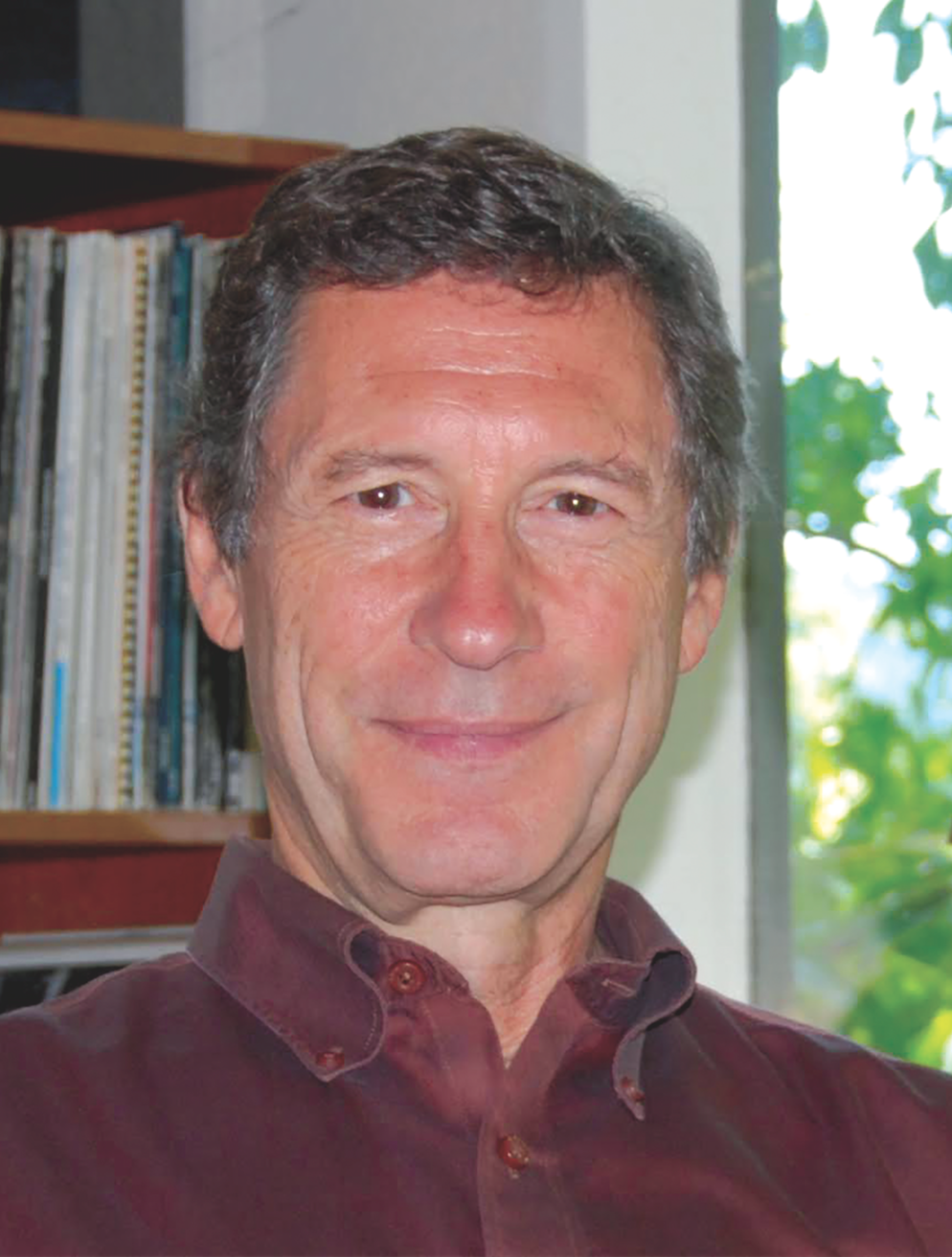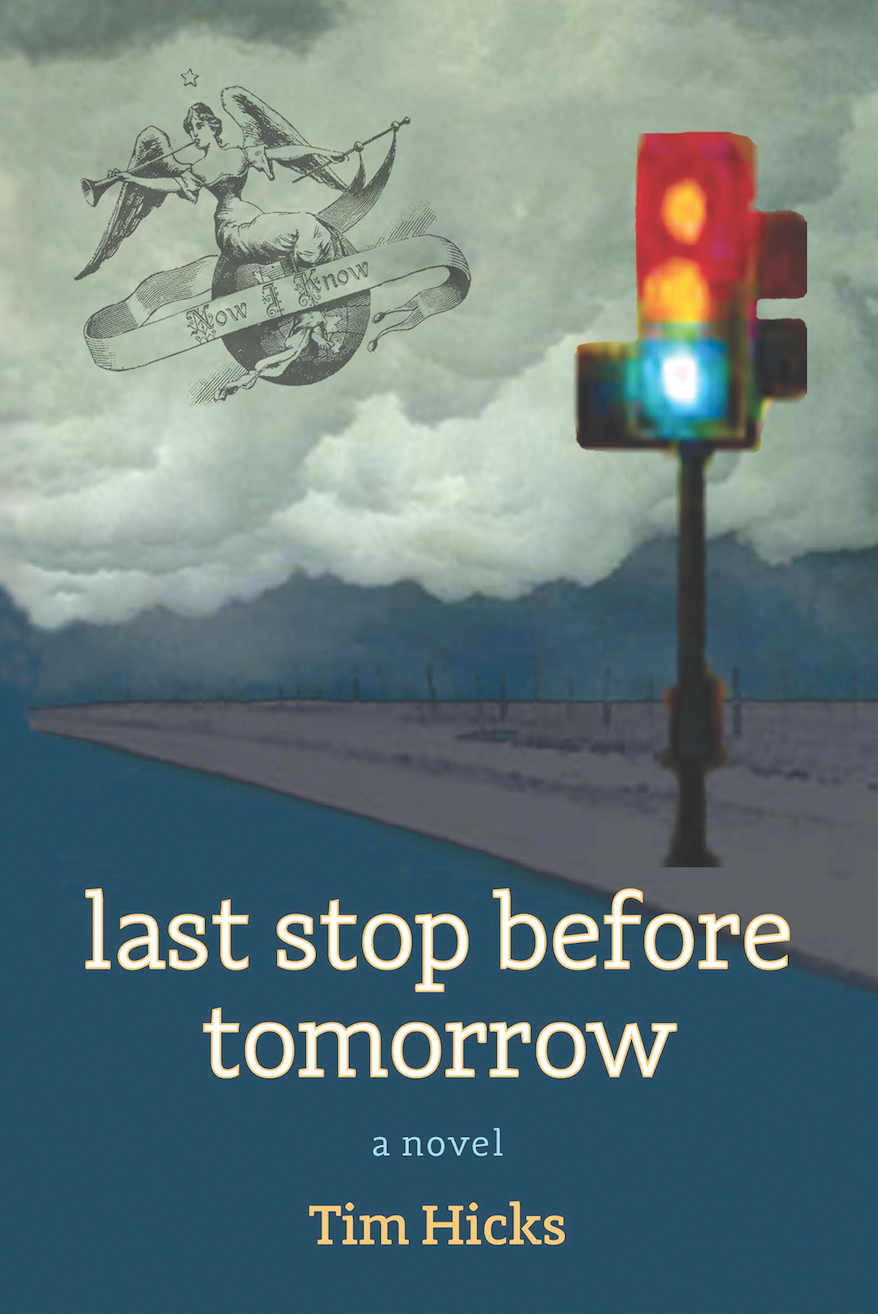Oregon author Tim Hicks


I first met Tim Hicks in 2006, while attending graduate school at the University of Oregon. Hicks was a director of the Conflict Resolution program I was studying in and proved himself to be a valuable project advisor and something of a mentor to me. Invariably, we had many academic discussions during my tenure there, but if I’m being honest, I have to say what I can only recall from those conversations with Hicks is talking about novels. I recently caught up with Hicks on N. Mississippi Ave. after his reading of an excerpt from his first and newly published novel, Last Stop Before Tomorrow.
ELEVEN: How did this book come to be?
Tim Hicks: I’d been trying to write nonfiction on climate change for a few years and had been unable to find a satisfying voice. One morning, I sat down to write and out came the first section of Last Stop. I didn’t know who Jules was, or why, or who the narrator was, or why. Next morning, wrote the next section, then the third. Then realized that, to my surprise and without my intention, I was writing a novel about the issues I’d been trying to write about in nonfiction. I had no idea what the story was to be, who the characters would be, etc. I just kept following it along, one step, one section at a time.
It was about a third of the way through the book that I realized what the ending would be. It was not an ending I wanted but it was the ending that was going to happen. I just had to follow along with the story as it seemed compelled to be told.
11: Your book is of course a work of fiction, but beyond that, I’m not sure of which other books to group it with– politics, current events, philosophy or natural history? Why so multi-disciplinary?
TH: Well, there is a lot of philosophy and a lot of history in it. It is so because the book is trying to look at the whole arc of human history from 50,000 years ago to our present predicament, so the various disciplines are naturally involved. And since the book is also dealing with our relationship with technology and our tool making, there’s also the natural history involved, and remember that philosophy and science were not separate to begin with. The political aspect is there because the book is also addressing the dilemmas we deal with in making group decisions at the social level, and therefore issues of power and control.
11: I found Sir Henry Percival McIntyre such a compelling character? Who was his inspiration?
TH: Mostly not inspired by one person, but bits of my father, and also a bit from my godfather who was a powerful NY lawyer who did a lot of international diplomacy stuff and who played piano with his wife on two grand pianos facing each other. But beyond those bits, just an invented character.
11: Art figures prominently in your book, what role does art play in relation to climate change?
TH: The connection is with our tool development, both art and technology are reflections of our creativity. As we mastered fire and made tools, we painted cave walls and constructed monoliths. We made tools to make art as well as to create safety and comfort. Both art and technology reflect and are manifestations of our aspirational natures. Maryanne is struck by the beauty of our technological explorations even as she is troubled by the unfolding story of technological development. Prometheus represents creativity as well as our source of fire as symbol of technological development and the management of heat in the transformation of matter into energy for our use. Maryanne loves the tools of art that she is surrounded by in Draw Your Own Conclusions, the art store where she has a day job.

11: Can you expound on the myth of Prometheus and why it’s a central trope in your book?
TH: Prometheus provided the fire that is a central symbol of technological development. Think early pottery industry, forging and metallurgy, steam engines and the burning of fossil fuels, and nuclear fission. Without fire, no transforming matter into energy that is essential for technological development. And all this has led to climate change.
11: You’ve dedicated your professional and academic career to conflict resolution. In what capacity does that inform your writing?
TH: In terms of Last Stop, the most direct links have to do with such issues as how we resolve differences, how we make decisions at the public level, the fact that issues are complex and multi- dimensional and there are not necessarily easy answers, issues of communication across differences, issues of meaning and how we assign meaning to the objects of our perception, what meaning we make of history and of ourselves, and the importance of the story we tell of ourselves and of our history. Things like that. Probably more to be said on this one.
11: What was your intention with the book?
TH: I wanted to offer a more nuanced view of climate change and to give it meaning within the arc of human history. I wanted to make sense of climate change. And I wanted to place climate change within the personal experience of the reader, to bring climate change home, so to speak.
11: What would you like readers to come away with after reading the book?
TH: I think we tend to think of climate change as the product only of bad or wrong human activity. I’d like us to see that climate change is the result of various parts of ourselves, including those parts of us that are some of our greatest strengths. There’s a way in which climate change can be a mirror in which we can see part of who we are. In the end, I’d like readers to come away with a feeling of more compassion for us as a species and for the circumstances we find ourselves in and for our efforts to make our way on this remarkable journey we are all participants in.
11: Are you optimistic or pessimistic about our prospects as a species given the climate change threat? How do you think things are going to turn out?
TH: In part, the book is about, and tries to convey, human history as a learning process, just as the story of an individual’s life is about learning. And certainly, the book is about what the outcome of the story will be, at least this part of the story that has to do with our impact on the planet.
Without giving away the ending of the book, it does raise the question of what the outcome will be. Will it be a tragedy or a successful shift in our behavior? The book raises the question without answering it. I hope that the book helps the reader ask what he or she wants the outcome to be, what might prevent that outcome, and what can we do to achieve the outcome we want. But the book also asks the meta-question of how much we are in control of the outcome after all. In this sense, the book raises philosophical questions as much as it does climate change response questions.
11: Any additional writing projects you’re working on?
TH: I’m working on a book titled Embodied Conflict on the roots of conflict and the challenges of conflict of resolution in the basic and fundamental neural function of encoding perceptual experience that is the basis of consciousness, learning, memory, cognition and identity. »
– Jack Alton



